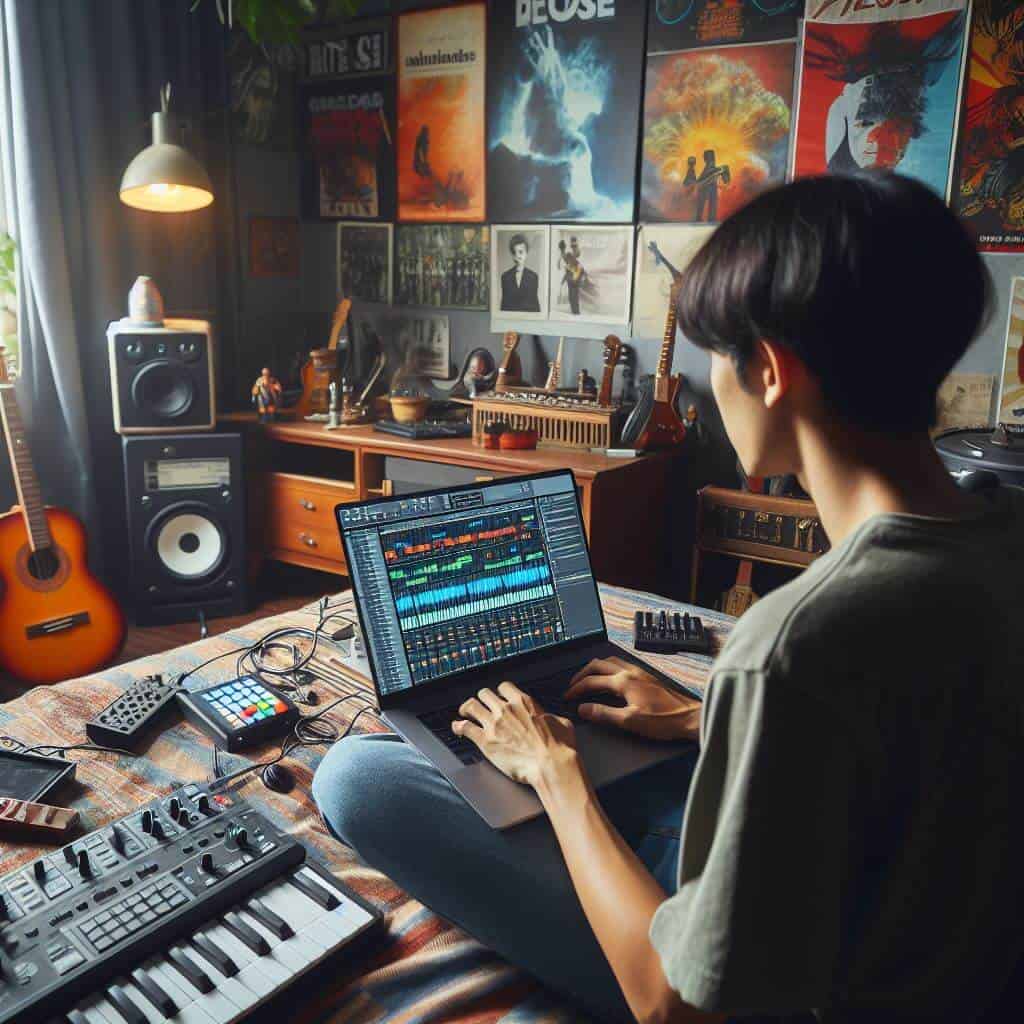Adobe Launches a New GenAI-Powered Music Creation Tool

- March 1, 2024
- allix
- AI in Business
During the Hot Pod Summit held in Brooklyn, Adobe introduced Project Music GenAI Control. This innovative platform is designed to generate audio based on text prompts (eg “happy dance”, “sad jazz”) or a specific melody, offering users the flexibility to customize the output in a single interface.
With Project Music GenAI Control, people can change aspects such as tempo, intensity, patterns, and the overall structure of the music. It also offers the ability to extend a piece of music to any desired length, remix existing tracks, or create continuous loops. This project is a joint venture with scientists from the University of California and Carnegie Mellon and may become available to the public in the future. However, as Gautham Mysore, Adobe’s head of audio and video AI research, pointed out during the summit, it is currently in development and does not yet have a user interface.
Mysore emphasized, “It essentially puts the AI in the role of generating the music, and you steer the direction by offering a variety of controls to experiment with. It allows you to bring your musical concepts to life without the need for composer skills.”
The surge in GenAI music tools and broader GenAI applications is sparking debate over ethical and legal issues as music and other forms of AI-generated content gain popularity. Cases of DIY tracks that closely mimic established songs in style, lyrics, and voice are gaining traction online, prompting music companies to crack down on potential copyright infringement. However, the legality surrounding “deepfake” music and its infringement of intellectual property rights, especially if it is created using copyrighted material, is still debated. A landmark court ruling in August declared artwork created by artificial intelligence uncopyrightable, but the US Copyright Office has yet to take a clear position, having only recently begun gathering public feedback on AI copyright issues. It’s also unclear whether users could face legal consequences for trying to monetize music inspired by the work of other artists.
Mysore noted that Adobe prefers to use licensed or public domain data for its GenAI tools to effectively address intellectual property issues. The specific approach for Project Music GenAI Control remains unconfirmed. Adobe is exploring a watermarking solution to distinguish audio produced by its platform, although that is still a work in progress. “Adobe takes a responsible approach,” Mysore said. “Many talented musicians are creating amazing work… I believe that [they] and tools like Project Music GenAI Control will co-exist, sparking new musical innovations.”
Categories
- AI Education (37)
- AI in Business (62)
- AI Projects (85)
- Research (57)
Other posts
- The Complete List of 28 US AI Startups to Earn Over $100 Million in 2024
- Keras Model
- Scientists Develop AI Solution to Prevent Power Outages
- NBC Introduces AI-Powered Legendary Broadcaster for Olympic Games
- Runway Introduces Video AI Gen-3
- Horovod – Distributed Deep Learning with TensorFlow and PyTorch
- Research Reveals Contradictory Positions Of AI Models On Controversial Issues
- Using AI to Understand Dog Barking
- The Autobiographer App Uses Artificial Intelligence To Record Your Life Story
- Chainer – Dynamic Neural Networks For Efficient Deep Learning
Newsletter
Get regular updates on data science, artificial intelligence, machine



